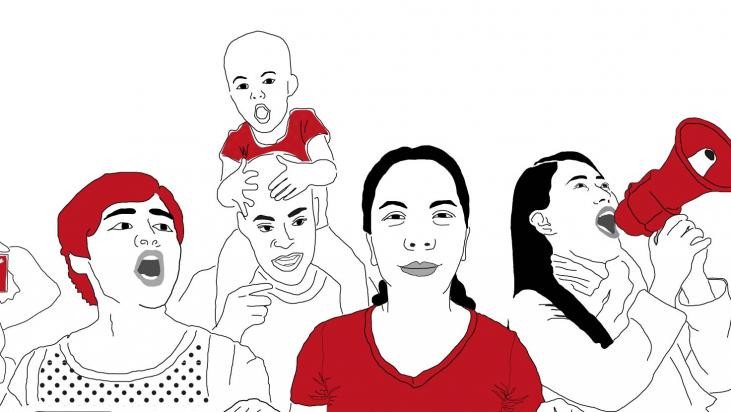Today, March 8th, marks International Women’s Day and the launch of the Global Days of Action on Tax Justice for Women’s Rights, coordinated by the Global Alliance for Tax Justice.
Olivia Lally, Senior Policy and Advocacy Officer on “Tax Justice” at Eurodad, the European Network on Debt and Development, introduces the issue in her blog “Making tax work for women’s rights”: “News headlines will rightly focus on the oppression, discrimination and systemic inequalities faced by women, but one point that is often overlooked is the many ways in which the tax system, like other policies and structures, offers a transformative tool for redistribution and financing gender equity”.
Magdalena Sepulveda Carmona, Senior Research Fellow at the United Nations Research Institute for Social Development (UNRISD) and member of ICRICT (The Independent Commission for the Reform of International Corporate Taxation) published a blog titled “Economic Inequality and Taxation are Feminist Issues” in several languages (Italian, French, Portuguese, English, Spanish) and many countries such as Morocco, Vietnam, Mexico, Belgium, etc.
“The fact that two women have kick-started a much-needed debate about taxes in the United States, Sepúlveda says, is not a coincidence. As revealed by a 2015 IMF study, countries with higher levels of income inequality also generate higher gender inequalities across health, education, labour market participation and representation.”
Liz Nelson, Director of “Tax Justice & Human Rights” at the Tax Justice Network, titles her blog “Do women go unseen in tax justice?”. Nelson explains: “Imagine if over 50 per cent of the world’s population were cast with an invisibility that impacts their birth, their childhood, their working life, their parenting life, their caring life, their mental and physical health and well-being, and their death? Less hard to imagine, perhaps, if you are one of the women represented in that majority.
On International Women’s Day the tax justice movement must ask: do we sufficiently acknowledge and address women’s invisibility as part of our tax ‘justice’ work. Here are three ways in which women go unseen:
- The world’s great invisible economy: unpaid care work
- Regressive tax cuts cut women out of the democratic process
- New tools for speaking up, old rules for who speaks”.
In Canada, while the Canadian Centre for Policy Alternatives issued a report calling for a review of tax deductions, credits and loopholes that primarily benefit men over women , and Oxfam Canada published its 2019 Feminist Scorecard acknowledging some progress, including the country’s first gender-budgeting, and highlighting the need to eliminate corporate tax loopholes and regressive income tax structures, Canadians for Tax Fairness published a thorough interview with Queen’s University Law professor
Kathleen Lahey, who is also an international expert to the UN on gender and tax issues. The interview is titled “Canada can’t advance women’s rights without tax fairness”.
Lana Payne, Union Unifor’s Atlantic Regional Director also published a blog, titled “Tax system still favours men over women”, in the Telegram.
Hannah Brejnholt Tranberg, Tax policy and Programme manager at ActionAid Denmark published a blog titled “Women’s equality requires money – not just words“. “Many good voices, Brejnholt Tranberg says, speak out for equality in the labor marker, at home and in the political and social arenas. But is there really a willingness to tranlstae these maby words into action?”, she asks.
Find out more about the Global Days of Action on Tax Justice for Women’s Rights on our campaign page !
